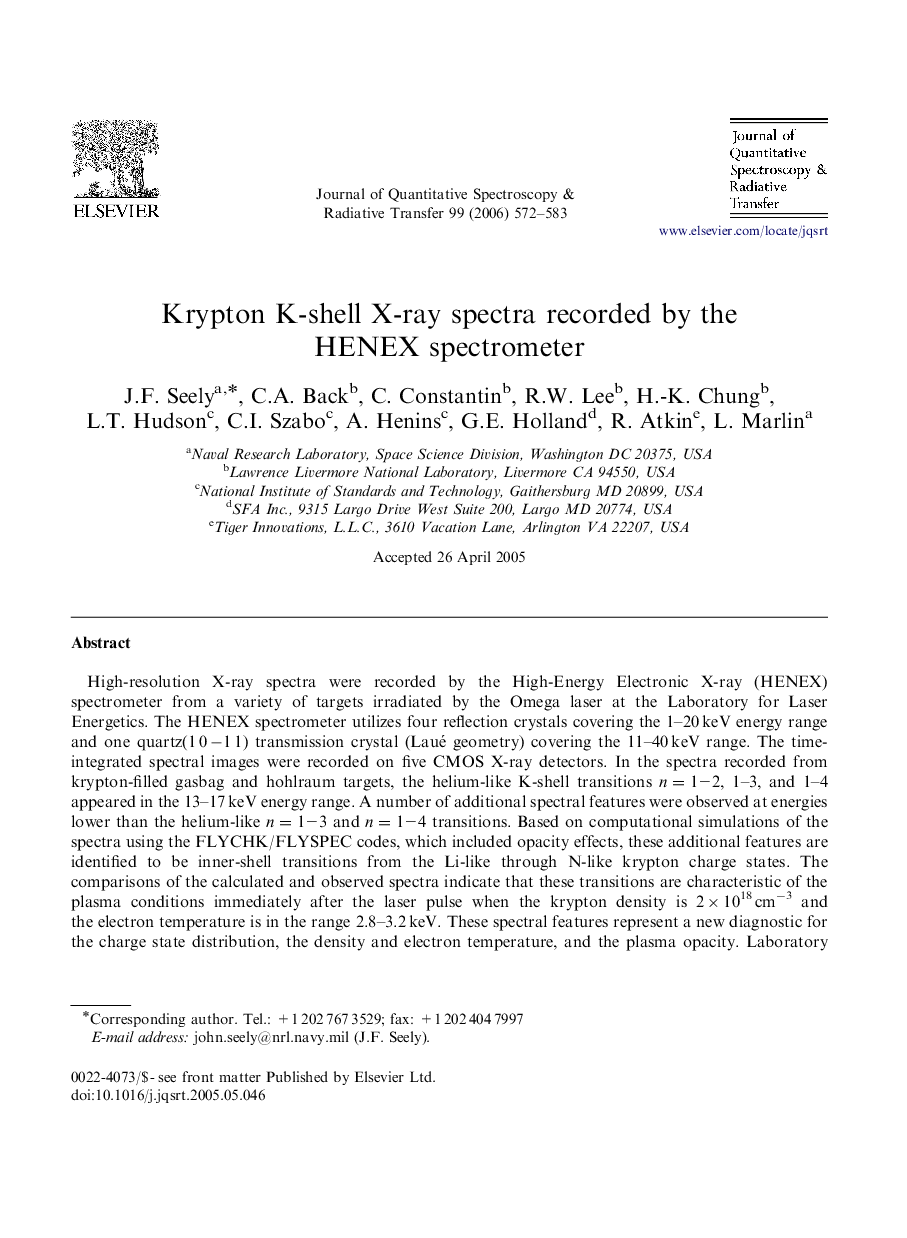| Article ID | Journal | Published Year | Pages | File Type |
|---|---|---|---|---|
| 5431126 | Journal of Quantitative Spectroscopy and Radiative Transfer | 2006 | 12 Pages |
High-resolution X-ray spectra were recorded by the High-Energy Electronic X-ray (HENEX) spectrometer from a variety of targets irradiated by the Omega laser at the Laboratory for Laser Energetics. The HENEX spectrometer utilizes four reflection crystals covering the 1-20Â keV energy range and one quartz(1Â 0Â â1Â 1) transmission crystal (Laué geometry) covering the 11-40Â keV range. The time-integrated spectral images were recorded on five CMOS X-ray detectors. In the spectra recorded from krypton-filled gasbag and hohlraum targets, the helium-like K-shell transitions n=1-2, 1-3, and 1-4 appeared in the 13-17Â keV energy range. A number of additional spectral features were observed at energies lower than the helium-like n=1-3 and n=1-4 transitions. Based on computational simulations of the spectra using the FLYCHK/FLYSPEC codes, which included opacity effects, these additional features are identified to be inner-shell transitions from the Li-like through N-like krypton charge states. The comparisons of the calculated and observed spectra indicate that these transitions are characteristic of the plasma conditions immediately after the laser pulse when the krypton density is 2Ã1018Â cmâ3 and the electron temperature is in the range 2.8-3.2Â keV. These spectral features represent a new diagnostic for the charge state distribution, the density and electron temperature, and the plasma opacity. Laboratory experiments indicate that it is feasible to record K-shell spectra from gold and higher Z targets in the >60Â keV energy range using a Ge(2Â 2Â 0) transmission crystal.
